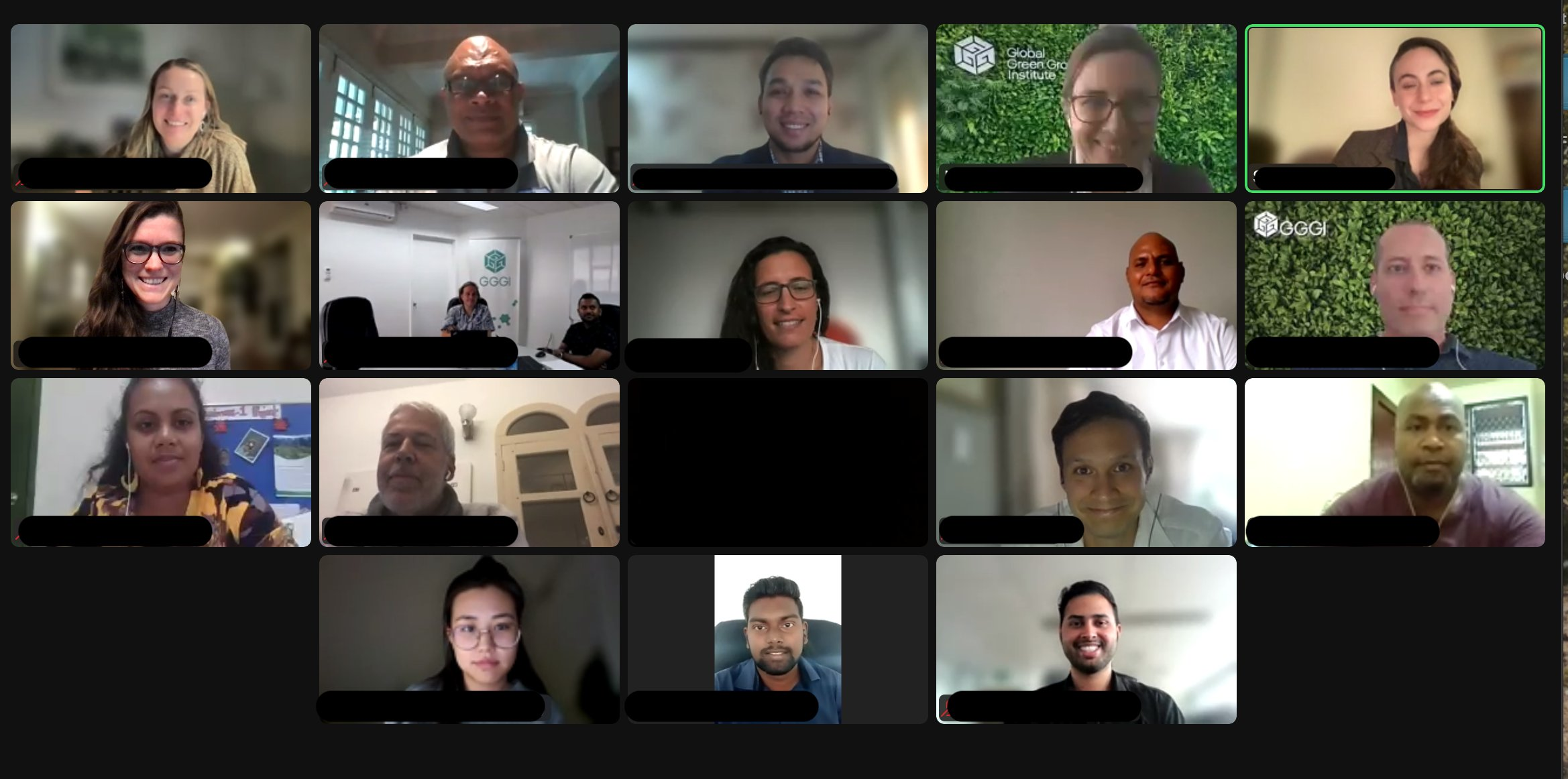News: E Co. kicks off Climate Finance Access Network training in the Pacific
22 February 2022, Category: All insights, News, Tags: CFAN, Pacific, Training

E Co. kicked off the Climate Finance Access Network (CFAN) Advisors training programme this February. The programme will be supporting advisors in Fiji, Kiribati, Papua New Guinea, Samoa, the Solomon Islands, Tonga, Tuvalu, and Vanuatu in unlocking critical climate finance.
What is the CFAN Advisors training programme?
Coordinated by the Rocky Mountain Institute (RMI), this programme is designed for Pacific-based advisors who have been recruited to provide in-country support – aligned with country priorities – over the next two years. Advisors will participate in CFAN’s state-of-the-art advisor training programme to ensure they are equipped to deliver on their mandates to unlock climate finance in developing countries.
The first cohort of CFAN advisors are from Fiji, Kiribati, Papua New Guinea, Samoa, the Solomon Islands, Tonga, Tuvalu, and Vanuatu. Funded with an initial CAD $9.5 million contribution from the Government of Canada, CFAN is a demand-driven initiative, tasked with unlocking climate finance in developing countries. Read CFAN’s announcement.

Source: @CFANAdvisors on Twitter. “🎉The first ever #CFANAdvisors training program is now in session! 🎉This marks the start of a first-of-its-kind training for advisors who will be working in-country to unlock #climatefinance for countries who need it most.”
E Co’s involvement
E Co. was involved in designing the programme in collaboration with Climate Finance Access Network (CFAN), Bankers without Boundaries, the Pacific Climate Change Centre (PCCC), and will be continuing to support the delivery of the training programme with other partners.
CEO Dr Grant Ballard-Tremeer stated: “The CFAN training kicked of at the start of February. The training includes online recorded content supported with practical live sessions and “office hours” so the trainees can do practical exercises, ask questions, and discuss approaches with colleagues and the trainers. At present Module 2 is underway and trainees are working on baseline assessments using tools like the influence-importance matrix for understanding stakeholders needs, problem tree analysis to understand root causes and effects, and eventually, to map the climate rationale for their own projects.”
Join the conversation by posting a comment below. You can either use your social account, by clicking on the corresponding icons or simply fill in the form below. All comments are moderated.